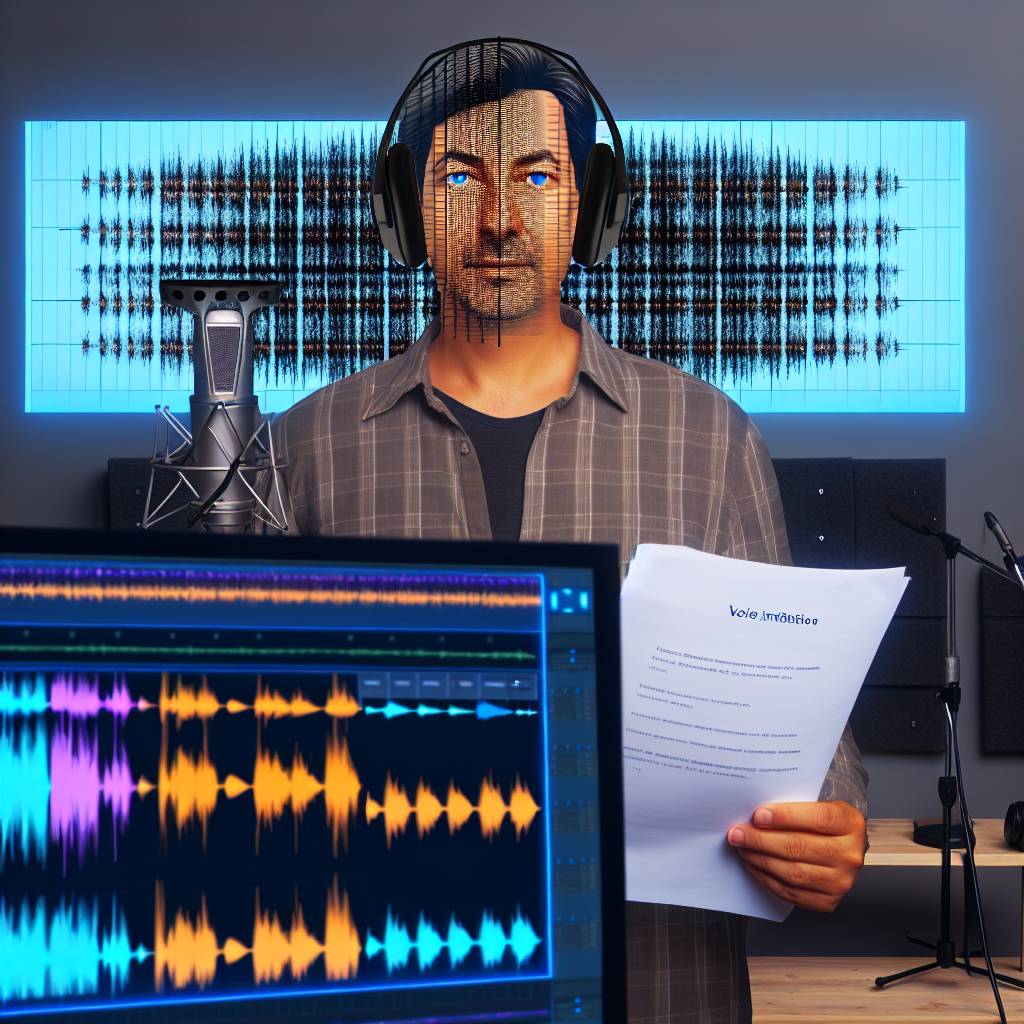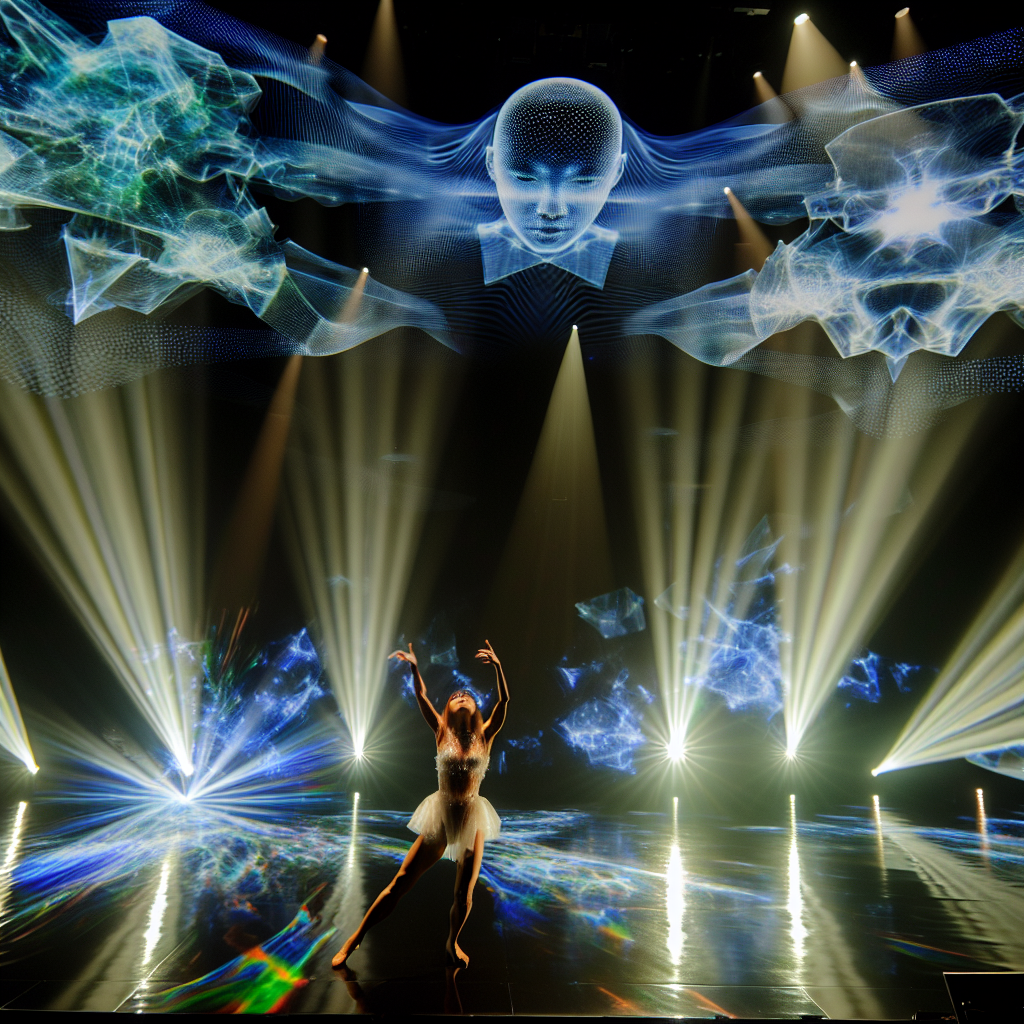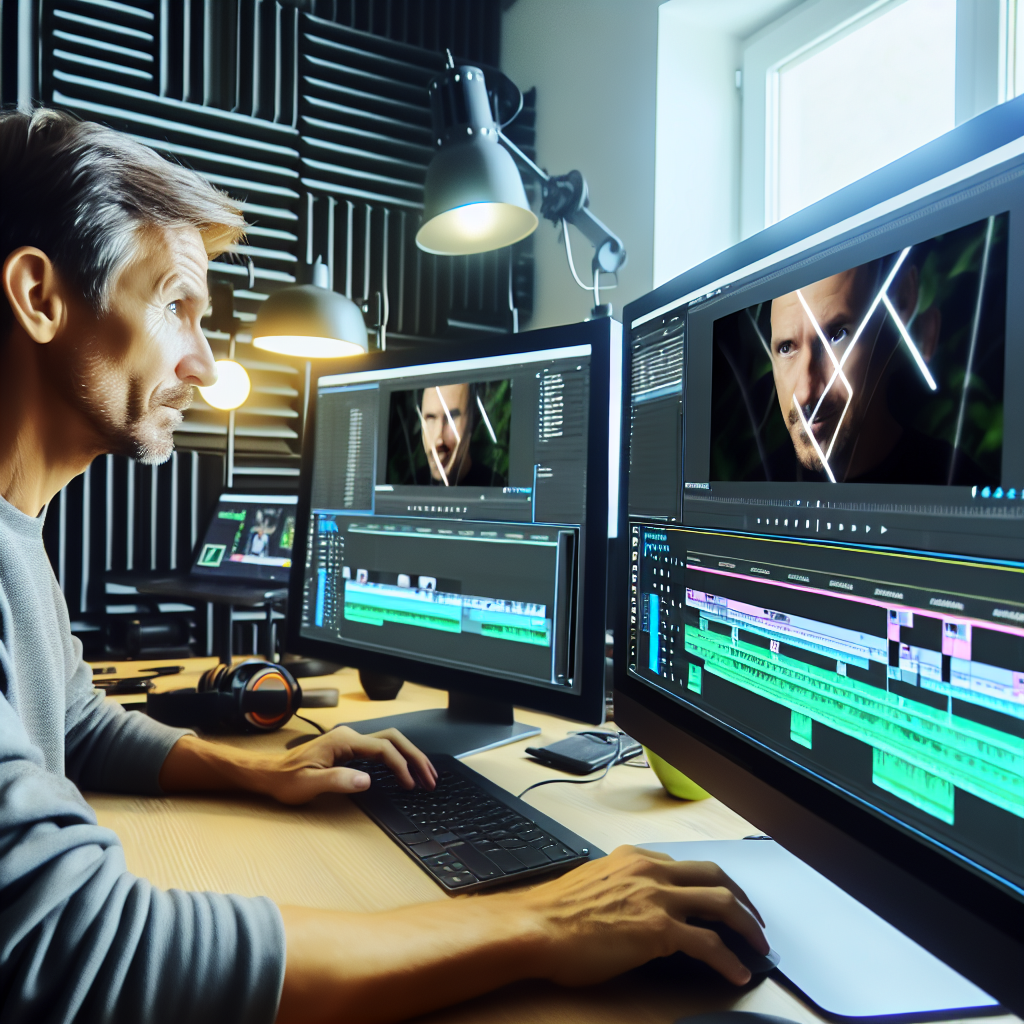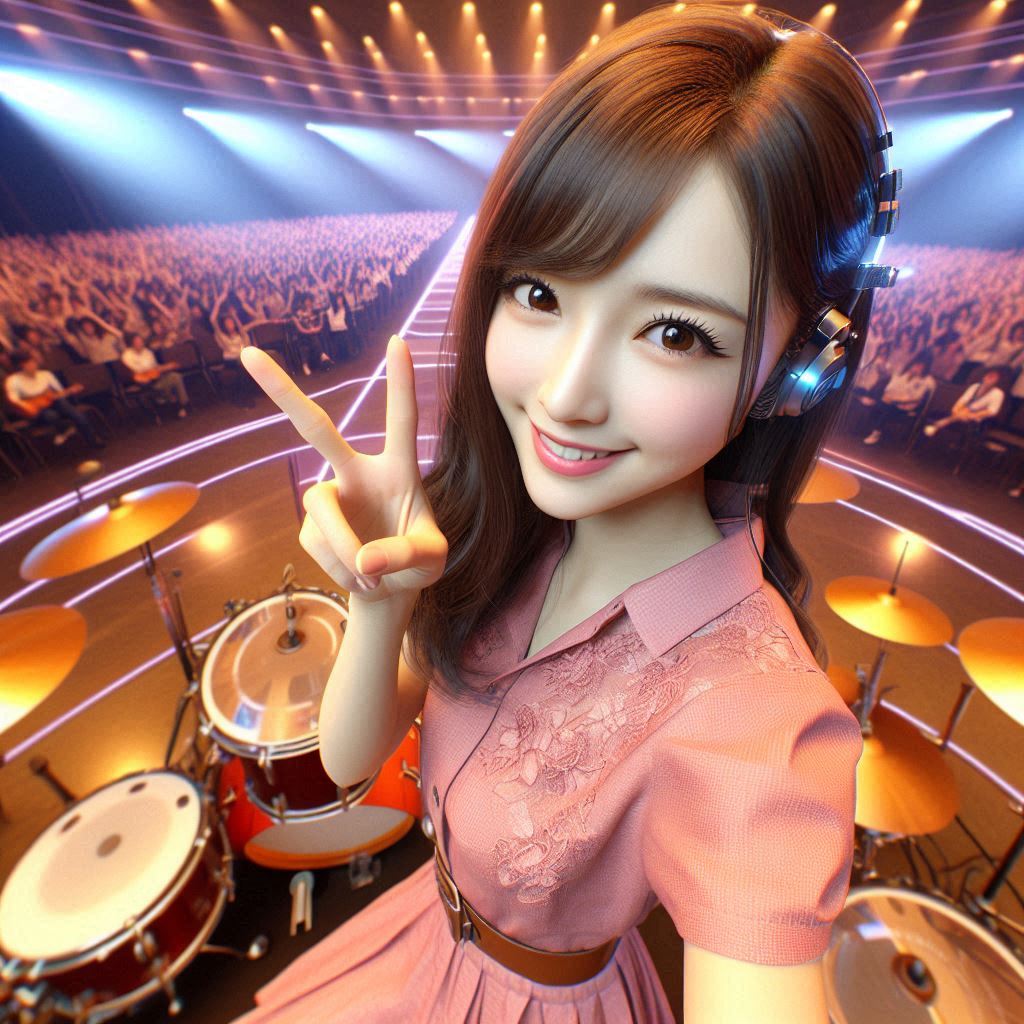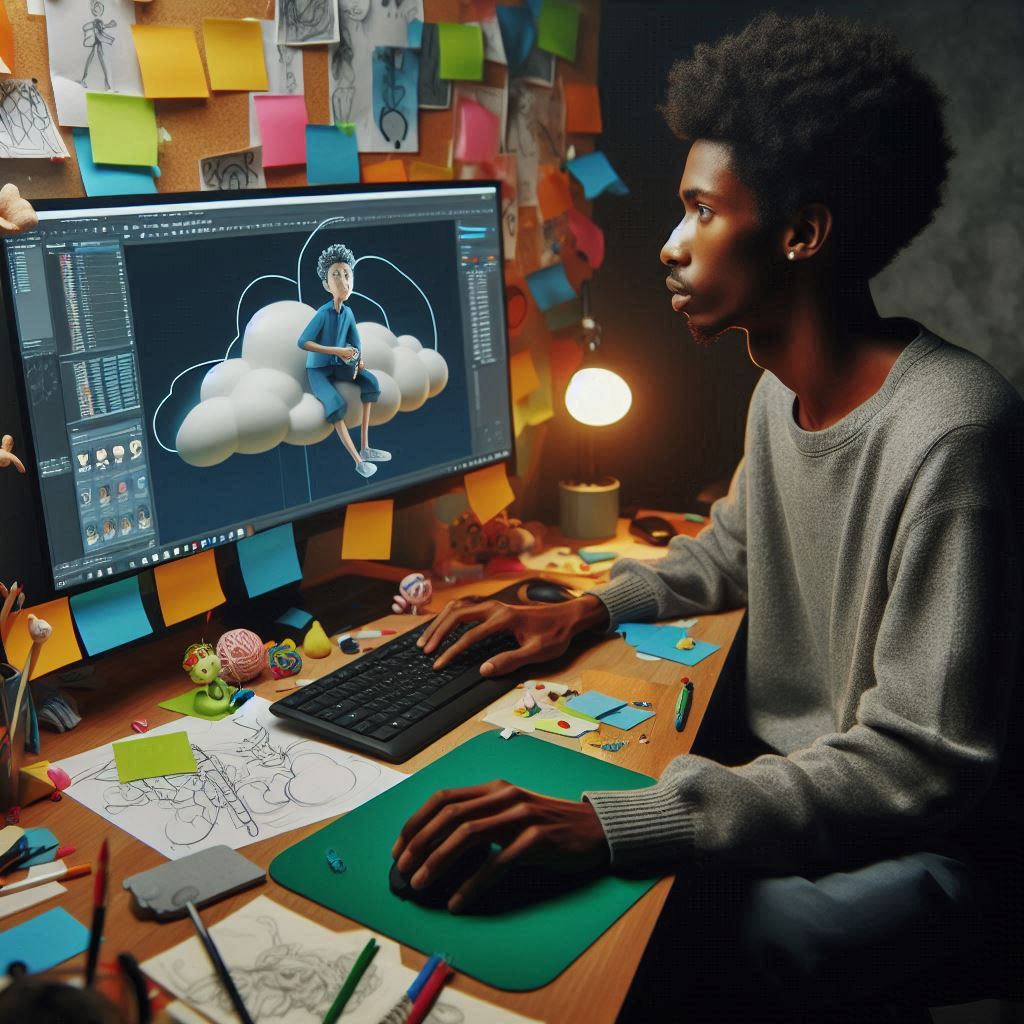Introduction
AI-generated music and its relevance in today’s digital landscape
AI-generated music refers to compositions created by algorithms or software systems.
These technologies analyze existing musical patterns and generate original melodies or harmonies.
In today’s digital landscape, this phenomenon has gained traction, transforming how we perceive music creation.
Overview of how technology has influenced music creation
The rise of technology undeniably influences music production and consumption.
Musicians and producers increasingly rely on software tools—streamlining processes and enhancing creativity.
Furthermore, the COVID-19 pandemic accelerated digital innovation, leading to more artists exploring AI as a collaborative partner.
The main themes that will be explored in the post
This blog post explores critical themes surrounding AI-generated music.
First, we will examine the underlying technology and tools enabling real-time music composition.
Then, we will discuss the implications for artists and the music industry.
Finally, we will address challenges and ethical concerns associated with using AI in music.
As we delve deeper, we will unravel the unique features of AI-generated music.
This exploration will showcase specific software that composers and musicians can utilize effectively.
We aim to provide insights into how these tools reshape the artistic process.
AI systems such as OpenAI’s MuseNet and Google’s Magenta project showcase impressive capabilities.
These platforms can generate complex compositions across various genres.
Musicians can input parameters or themes, and the AI responds by creating new pieces in real-time.
Moreover, the integration of AI in music creation invites questions about originality and ownership.
As machines compose, who holds the rights to the music?
These ethical dilemmas require careful consideration as technology evolves.
Ultimately, this journey through AI-generated music reveals its transformative potential.
By understanding this dynamic, musicians can harness its power to enrich their creative endeavors.
We invite you to explore the potential of AI in music and its impact on the future of the industry.
The Evolution of Music Composition
Music composition has undergone significant transformations throughout history.
Early musicians relied on oral traditions. They passed melodies down through generations.
The recording of music began to change this reliance.
The invention of music notation in the Middle Ages allowed composers to write their music.
This shift laid the groundwork for more complex compositions.
Composers like Bach, Mozart, and Beethoven began to innovate.
They expanded musical forms and structures significantly.
Historical Context of Music Composition Before AI Intervention
Before the rise of artificial intelligence, music composition evolved slowly.
Musicians primarily depended on traditional methods of creation.
They wrote music using notation and performed it live.
The process required immense skill and creativity.
Composers spent years mastering their craft.
Many faced challenges in expressing their artistic vision within the limitations of existing styles.
We Design & Develop Websites, Android & iOS Apps
Looking to transform your digital presence? We specialize in creating stunning websites and powerful mobile apps for Android and iOS. Let us bring your vision to life with innovative, tailored solutions!
Get Started TodayIn the 20th century, technological advancements began to shape music.
The introduction of electric instruments changed sound possibilities.
The invention of magnetic tape allowed for recording and editing.
These advancements opened doors for new genres like rock, jazz, and electronic music.
Artists like Miles Davis and The Beatles pushed boundaries.
They experimented with sound and structure.
Their innovations inspired generations of musicians.
However, the core composition process remained largely human-driven.
Skilled composers and musicians directed the art of music creation.
Key Developments in Technology That Led to the Emergence of AI in Music
As technology advanced, musicians embraced new tools for composition.
The invention of personal computers revolutionized music production.
Software applications allowed for easier sound synthesis and manipulation.
This progress paved the way for AI-driven tools.
Several key developments influenced this transition:
- Digital Audio Workstations (DAWs): DAWs like Ableton Live and Logic Pro became essential for musicians. These tools facilitated recording, editing, and mixing music.
- MIDI Technology: MIDI enabled musicians to control electronic instruments. This development simplified the composition process significantly.
- Sound Sampling: The ability to sample and manipulate sounds changed music creation. These techniques allowed artists to incorporate diverse sounds.
- Machine Learning: The rise of machine learning unlocked new possibilities. Algorithms began to analyze vast amounts of musical data.
- Neural Networks: These networks enable software to generate music that mimics human creativity. They analyze existing compositions to create original pieces.
Introduction of Software Tools That Started the Trend of Automated Music Generation
The emergence of AI in music composition began with various pioneering software tools.
These applications harnessed emerging technologies to facilitate creativity.
They aimed to assist musicians rather than replace them.
Here are some influential tools in the automated music generation landscape:
- AIVA (Artificial Intelligence Virtual Artist): AIVA composes music for films, games, and commercials. It uses deep learning algorithms trained on classical music.
- Amper Music: Amper allows users to create custom music tracks in real time. It offers easy customization for different genres and moods.
- OpenAI’s MuseNet: This deep learning model can generate four-minute musical compositions. It can combine different genres and styles seamlessly.
- Jukedeck: Jukedeck created royalty-free music tracks for content creators. It uses AI to generate music tailored to specific video needs.
- Soundraw: Soundraw empowers users to create and edit music in seconds. It offers an intuitive interface for instant music generation.
These tools leverage AI techniques to make music composition accessible.
They provide musicians with advanced resources.
Some professionals use these tools for inspiration, while others explore new creative avenues.
The evolution of AI-driven software has sparked debates in music communities.
Critics fear that computers might overshadow human creativity.
Supporters argue that AI enhances the creative process.
The Role of Collaboration Between Artists and AI
AI has the potential to enhance human creativity significantly.
Musicians can use AI software as a collaborative partner.
This partnership allows for novel creative expressions.
Here are some collaborative dynamics emerging in the field:
- Creative Assistance: AI can quickly generate musical ideas. It provides inspiration for musicians seeking fresh perspectives.
- Production Efficiency: Automated tools save time in the music production process. Musicians can focus more on artistic aspects rather than technical details.
- Experimentation: Artists can explore new sounds and genres utilizing AI-generated music. This exploration leads to unique fusions of styles.
- Interactive Performances: Some musicians integrate AI in live performances. AI can adapt to audience reactions, creating a dynamic experience.
- Accessible Music Creation: AI tools democratize music composition. Aspiring musicians, regardless of skill level, can create quality music.
The relationship between artists and AI continues to evolve.
Each collaboration presents opportunities for innovation.
Yet, ethical considerations remain crucial.
Discussions about ownership, originality, and creativity may influence the future landscape of music composition.
The integration of AI into music composition is still in its infancy.
Both artists and technologists will shape its future.
As AI technology progresses, so will its capabilities.
We Design & Develop Websites, Android & iOS Apps
Looking to transform your digital presence? We specialize in creating stunning websites and powerful mobile apps for Android and iOS. Let us bring your vision to life with innovative, tailored solutions!
Get Started TodayMusicians will discover new ways to express their ideas.
The evolution of composition signals an exciting new era.
It blends technology with the timeless art of music.
The next wave of creativity awaits exploration.
Read: Cloud-Based Animation Software: Streamlining Production for Small Studios
How AI Composes Music
AI-generated music is revolutionizing how we understand and create songs.
This technology relies on complex algorithms and machine learning techniques for composition.
To appreciate how AI can compose music effectively, we must first explore the underlying technologies that drive it.
Below, we outline the processes that enable AI to become a creative partner in music composition.
Algorithms and Machine Learning Techniques
AI uses various algorithms designed for different aspects of music composition.
Here are some common types:
- Markov Chains: This technique generates music by predicting the next note based on the previous notes. It applies probabilities to transitions between notes, creating coherent melodies.
- Generative Adversarial Networks (GANs): GANs consist of two neural networks, one generates music, while the other critiques it. This competition enhances the quality of generated pieces.
- Reinforcement Learning: AI receives feedback on its compositions, allowing it to improve over time. This method is particularly effective for composing styles that require different emotional tones.
- Evolutionary Algorithms: These algorithms simulate natural selection. AI generates multiple musical variations, and the most appealing ones “survive” for further development.
Each of these techniques serves a specific purpose in composing music.
They contribute significantly to creating songs that resonate with human emotions and artistic intentions.
Role of Neural Networks and Deep Learning
Neural networks play a crucial role in how AI understands and generates music.
Here’s how they function:
- Pattern Recognition: Neural networks excel at recognizing patterns in vast datasets. They can dissect the intricacies of harmony, rhythm, and melody from existing music.
- Feature Extraction: Through deep learning, neural networks identify key features like tempo, key signature, and instrumentation. This understanding allows them to generate more nuanced music.
- Sequence Modeling: Recurrent Neural Networks (RNNs) and Long Short-Term Memory (LSTM) networks model sequences effectively.
They maintain information on previous inputs, making them perfect for musical phrases that evolve over time. - Emotion Mapping: Some deep learning models can analyze the emotional content in music. They can adapt their compositions to evoke specific feelings in listeners.
These capabilities demonstrate how deeply entrenched AI has become in the field of music composition.
The constant evolution of neural networks enhances the music generation process, leading to works that are increasingly indistinguishable from human compositions.
Data Input Processes: Training AI on Existing Music Catalogs
Training AI requires extensive datasets of existing music.
Here’s how the data input process works:
- Data Collection: AI developers gather vast libraries of music spanning different genres and styles. These collections feature notable compositions, which serve as the training ground for AI.
- Preprocessing: This stage involves cleaning the data. Developers convert audio files into note sequences, transforming them into a format that AI can analyze effectively.
- Annotation: Marking the music with specific features aids AI in understanding musical structures. It helps the model learn about dynamics, tempo changes, and harmonic relationships.
- Training Algorithms: Various machine learning algorithms are employed to expose the AI to the music dataset. Each algorithm has different objectives, focusing on melody, harmony, or rhythm.
- Validation and Testing: After training, developers validate the AI’s performance. They create test cases where AI-generated music is compared to compositions from human composers.
This process ensures that the AI develops a rich understanding of music, honing its ability to create original pieces that capture human artistry.
Challenges and Future Prospects
While AI-generated music is making strides, it also faces several challenges:
- Creativity Limitations: AI can struggle to produce truly innovative compositions. Most generated music leans on learned patterns rather than groundbreaking creativity.
- Subjective Evaluation: Musical taste is subjective. What resonates with one person may not resonate with another. Defining success is complex.
- Intellectual Property Issues: The question of ownership over AI-generated works remains unclear, raising legal concerns about authorship and credit.
- Emotional Depth: Despite advancements, AI often lacks the emotional depth human musicians bring. Genuine feelings can be hard to replicate without lived experiences.
Despite these challenges, the future prospects for AI in music composition are promising.
We can expect advancements that allow for greater interaction between AI and human musicians.
his will lead to collaboration rather than competition, combining human creativity with AI efficiency.
Furthermore, ongoing research will likely enhance AI’s understanding of emotions and art, enabling deeper connections with listeners.
In fact, AI-generated music relies on intricate algorithms, machine learning techniques, and extensive training on existing catalogs.
Through neural networks and deep learning, AI gains the capability to recognize patterns and produce compelling pieces.
As AI continues to evolve, its collaboration with human artists will shape the future of music composition, ensuring that both human creativity and technological advancements coexist harmoniously.
Read: AI-Powered Virtual Influencers: Software Behind the Digital Stars of 2024
Popular AI Music Generation Tools and Software
Artificial Intelligence has made significant strides in music generation.
Various software tools now allow users to create original music effortlessly.
Let’s explore notable AI music generation tools available today, their features, functionalities, and the genres they can produce.
AIVA
AIVA (Artificial Intelligence Virtual Artist) is a leading AI music generator.
It composes music in real-time, catering primarily to film, television, and game industries.
Here are some of its standout features:
We Design & Develop Websites, Android & iOS Apps
Looking to transform your digital presence? We specialize in creating stunning websites and powerful mobile apps for Android and iOS. Let us bring your vision to life with innovative, tailored solutions!
Get Started Today- Composition Styles: AIVA can mimic various composers, allowing it to create pieces that range from classical to modern.
- User-Friendly Interface: The software features an intuitive interface, making it accessible for beginners and professionals alike.
- Multi-Genre Capability: AIVA excels in several music genres, including classical, jazz, and electronic.
- Customizable Parameters: Users can adjust tempo, mood, and instrumentation to steer the composition in specific directions.
AIVA’s ability to generate unique scores based on user input sets it apart.
For example, you can specify whether you want a dark symphony or an upbeat jazz piece.
OpenAI’s MuseNet
MuseNet offers an advanced music generation experience through deep learning models.
It stands out for its versatility and vast genre database.
Consider its key features:
- Multi-Instrument Compatibility: MuseNet can generate compositions featuring diverse instruments like piano, guitar, and strings.
- Genre Diversity: It can compose music in styles ranging from country to classical, showcasing remarkable flexibility.
- Contextual Awareness: MuseNet can analyze the ongoing composition and adapt, creating fluid musical progressions.
- Real-Time Generation: Users can generate music instantly, allowing for quick adjustments and iterations on compositions.
For instance, MuseNet could start with a classical piece, then shift seamlessly into a modern pop arrangement, illustrating its adaptability.
Amper Music
Amper Music is another popular tool aimed at content creators.
This AI tool simplifies the process of generating music for videos and other projects.
Its notable features include:
- Flexible Licensing: Amper offers a unique model where users can create and license music without extensive legal complications.
- Customizable Tracks: Users can select genres, instruments, and moods to create personalized music tracks.
- Intuitive Interface: The software is designed to be user-friendly, catering to those without a musical background.
- Quick Production Time: Users can generate quality tracks within minutes, streamlining the content creation process.
Amper excels in producing background music for an array of projects, from podcasts to advertisements, adapting its output to fit various contexts.
Soundraw
Soundraw provides an innovative platform for generating AI-assisted music.
It caters to a wide range of users, from amateur musicians to professional content creators.
Key features include:
- AI Collaboration: Soundraw allows a unique collaborative experience, letting users modify AI-generated compositions.
- Personalized Adjustments: Users can edit tracks based on tempo, length, and various parameters, making the music truly their own.
- High-Quality Outputs: Soundraw creates professional-grade music, catering to high-stakes projects.
- Real-Time Editing: Users can adjust tracks in real time, providing a responsive creation process.
Soundraw is perfect for creators who want to personalize their music while still leveraging AI for inspiration and efficiency.
Jukedeck
Jukedeck focuses on producing royalty-free music specifically for videos.
It uses machine learning to generate tracks tailored to video content.
Some of its primary features are:
- Instant Tracks: Users can generate tracks quickly, saving time when producing video content.
- Custom Background Music: Jukedeck allows users to dictate the mood and style of the generated music.
- Variety of Genres: The software supports multiple genres, ensuring a broad selection of music styles.
- Seamless Integration: Jukedeck integrates smoothly with various video editing tools, enhancing productivity.
For users requiring quick, high-quality background music for online videos, Jukedeck provides an excellent solution.
Magenta Studio
Magenta Studio is a creative project from Google that emphasizes artistic expression through music.
It comprises several tools for composers and musicians.
Key attributes include:
- Interactive Music Creation: Users can engage with the AI in a collaborative manner, influencing the music generation process.
- Diverse Tools: It provides various tools for melody creation, improvisation, and accompaniment.
- Open Source: Being an open-source project, users can modify and contribute to its development.
- Accessibility: Magenta can be used directly in programming environments, allowing tech-savvy users to integrate it into their workflows.
Musicians seeking to collaborate with AI while maintaining creative control will find Magenta Studio particularly engaging.
Genres and Styles
AI music generation tools can create a diverse array of genres and styles.
Here are some examples:
- Classical Music: Tools like AIVA and MuseNet excel in producing orchestral symphonies and chamber music.
- Jazz: AIVA and Amper Music can craft smooth jazz tracks with improvisational elements.
- Pop: MuseNet and Soundraw generate catchy pop songs with modern instrumentation and beats.
- Electronic: Amper Music and Soundraw can create vibrant electronic dance music (EDM) tracks.
- Film Scores: AIVA’s focus on cinematic music makes it a top choice for scoring films.
The versatility of these tools opens endless possibilities for creativity.
As AI technology continues to evolve, the scope of music generation will only expand further.
Read: AI-Powered Virtual Influencers: Software Behind the Digital Stars of 2024

The Creative Process: Human vs. AI
The intersection of artificial intelligence (AI) and music composition offers a fascinating dynamic.
Musicians can leverage AI tools to enhance creativity, inspire new ideas, and streamline workflows.
Understanding how AI integrates into the creative process reveals both the advantages and challenges artists face today.
This section explores the integration of AI in music, examines traditional composition methods, and shares insights from musicians collaborating with AI technologies.
AI Integration in the Creative Process
AI plays a transformative role in music composition.
It assists musicians in various ways through different applications and software.
Here are some key areas where AI integrates into the creative process:
- Music Generation: AI algorithms can generate original melodies, harmonies, and rhythms. Musicians can use these outputs as starting points.
- Style Imitation: AI can emulate specific musical styles, allowing composers to explore sounds from different genres instantly.
- Dynamic Composition: Some tools allow real-time composition, adjusting music based on various inputs or user preferences, enhancing creativity during live performances.
- Feedback and Suggestions: AI can analyze tracks and provide suggestions for improvement, effectively acting as an assistant or mentor for musicians.
- Collaboration: AI can act as a creative partner, where musicians input ideas and the software expands them into full compositions.
This integration opens a broader canvas for musicians to explore their creativity without the constraints of traditional methods.
We Design & Develop Websites, Android & iOS Apps
Looking to transform your digital presence? We specialize in creating stunning websites and powerful mobile apps for Android and iOS. Let us bring your vision to life with innovative, tailored solutions!
Get Started TodayAs technology advances, the creative possibilities continue to grow.
Comparison of Traditional Music Composition Methods with AI-Assisted Techniques
Traditional music composition relies heavily on a musician’s intuition, experience, and creative vision.
Artists often follow established practices and structures.
However, AI-assisted techniques introduce various new paradigms.
Here are some comparisons between the two approaches:
Process
- Traditional Method: Musicians often start with a conceptual idea and build upon it, crafting melodies, harmonies, and lyrics over time.
- AI-Assisted Method: Musicians provide initial inputs or themes. The AI generates a multitude of variations in real-time.
Inspiration
- Traditional Method: Inspiration comes from lived experiences, emotions, or influences found in nature or literature.
- AI-Assisted Method: Inspiration can stem from algorithms analyzing millions of songs to generate new ideas based on patterns.
Collaboration and Interaction
- Traditional Method: Collaboration occurs between human musicians, who share ideas and refine their works through discussions.
- AI-Assisted Method: Collaboration occurs between humans and AI systems, which provide unique outputs that can inspire further creativity.
This comparison highlights distinct philosophies in music creation.
Traditional methods emphasize human touch, while AI methods focus on data-driven creativity.
Although the two may seem oppositional, they can complement each other effectively.
Perspectives from Musicians Who Have Collaborated with AI Tools
Musicians’ experiences with AI tools provide valuable insights into music composition’s evolution.
Many artists now embrace AI technologies in their creative processes.
Here are perspectives shared by some musicians who have collaborated with these tools:
- Emma Johnson, Experimental Musician: “Using AI tools opened my mind to diverse possibilities. Generating unique melodies helped me break free from creative blocks.”
- David Lee, Pop Producer: “I thought integrating AI would hinder my creativity, but it actually enhanced my workflow. The AI offers a fresh perspective on sound design.”
- Sophia Chen, Film Scorer: “AI generates ideas based on themes I provide, which saves me time. I can focus on refining the emotional aspects of my compositions.”
- Mark Thompson, Jazz Musician: “Collaborating with AI is like jamming with an innovative partner. How it reacts in real-time creates spontaneous moments in performance.”
- Lila Rodriguez, Electronic Artist: “AI allows me to explore genres beyond my expertise. I can experiment freely without the weight of traditional conventions.”
These artists illustrate creativity’s adaptive nature in the face of technology.
While AI cannot replace the human element, it enhances artistic expression.
Musicians emphasize AI as a tool that complements their unique instincts.
In essence, integrating AI transforms music composition.
By offering new methodologies and enhancing collaboration, AI helps musicians explore uncharted territories.
Artists can combine traditional and AI-assisted techniques to express their artistry.
As more musicians venture into this hybrid creative space, the music landscape will evolve, expanding styles and boundaries.
The partnership between musicians and AI tools proves effective, turning technology into a powerful creative ally.
Read: Motion Capture Software: Bringing Realistic Animation to Indie Games
Use Cases and Applications
AI-generated music is rapidly transforming various sectors.
This innovative technology continues to unlock new possibilities for creativity and efficiency.
Here, we explore several prominent areas where AI-composed music is making a significant impact.
Film Industry
The film industry has embraced AI-generated music due to its speed and creativity.
Composers can produce personalized soundscapes, enhancing storytelling and emotional engagement.
Here are some examples of its adoption:
- Background Scores: AI music software generates scores tailored to mood and intensity.
- Sonic Branding: Films utilize music that resonates with their audiences, created through AI analytics.
- Cost Efficiency: Productions save time and money by automating music selection and creation.
For instance, the film “Sunspring” features a script entirely written by an AI.
The music accompanying the film was also AI-generated, showcasing the synergy between technology and narrative.
This successful integration emphasizes AI’s role in modern filmmaking.
Gaming Industry
The gaming sector shows immense interest in AI-generated music.
Games require adaptive soundscapes that react to players’ actions in real-time.
Here’s how AI music enhances the gaming experience:
- Dynamically Generated Scores: AI compositions adjust based on gameplay, ensuring immersive experiences.
- Variety in Soundtracks: Developers use AI to create an extensive array of music, reducing repetition.
- Player Personalization: AI can analyze player preferences, tailoring the music to individual styles.
In “No Man’s Sky,” for example, the game uses an AI system that generates adaptive music according to players’ exploration.
This feature creates a unique, personal encounter for each player, showcasing the adaptability of AI-generated content.
Advertising and Marketing
AI-generated music has revolutionized advertising by creating memorable soundtracks.
We Design & Develop Websites, Android & iOS Apps
Looking to transform your digital presence? We specialize in creating stunning websites and powerful mobile apps for Android and iOS. Let us bring your vision to life with innovative, tailored solutions!
Get Started TodayBrands increasingly rely on music to evoke emotions and enhance their messages.
Here are some major applications:
- Tailored Jingles: Brands generate catchy jingles using AI, making their ads more engaging.
- Market Analysis: AI analyzes successful trends in music and consumer emotional responses.
- Cost-Effective Solutions: Marketers save time by automating music composition for advertisements.
One notable example is the “A.I. Jingles” campaign launched by Coca-Cola.
They utilized AI to create a catchy jingle that resonated with their audience effectively.
The ad’s success highlighted the potential of AI music in the marketing sector.
Music Therapy
In the field of healthcare, AI-generated music has begun to assist in therapy practices.
Music therapists incorporate AI to enhance emotional well-being.
Here’s how AI contributes in this area:
- Customized Playlists: Therapists use AI tools to create playlists tailored to patients’ emotional states.
- Adaptive Music Generation: Music adapts in real-time to a patient’s mood and needs during sessions.
- Assessment and Feedback: AI systems provide data on how music affects different patients.
Projects like “Melody VR” demonstrate AI’s advantages in therapeutic settings.
This application utilizes AI-driven music to promote relaxation and mindfulness, emphasizing its growing role in healthcare.
Live Performances and Events
AI-generated music is redefining live performances.
Artists and musicians increasingly collaborate with AI to create innovative shows.
Here’s a look at how performances change due to AI:
- Real-Time Composition: AI tools generate music live, adjusting to the audience’s reactions and energy.
- Collaborative Performances: Musicians interact with AI to blend human creativity with machine efficiency.
- New Genres and Styles: AI inspires experimentation, leading to novel music styles and genres.
For instance, the live concert “Algorave” integrates coding with music creation.
Artists code live to produce unique soundscapes on stage.
This intersection of technology and creativity showcases a burgeoning trend in live performances.
Case Studies of Successful Projects
Various projects illustrate the successful implementation of AI-generated music across sectors.
Here are some notable examples:
- Amper Music: This platform allows users to create custom music tracks in minutes. It’s widely used in film and advertising.
- AIVA: This AI composer writes emotional soundtracks and has been recognized by the International Federation of Musicians.
- OpenAI’s MuseNet: MuseNet generates high-quality music across genres, showing vast creative possibilities.
These case studies demonstrate the versatility and potential of AI in music creation.
As technology advances, we can expect even more groundbreaking projects to emerge.
AI-generated music is reshaping how different sectors utilize sound.
From film and gaming to advertising and therapy, AI continues to offer innovative solutions.
As artists and industries embrace this technology, the possibilities for creative collaboration will grow exponentially.
The future of music is bright, and AI will undeniably play a significant role in shaping it.
Challenges and Controversies
The rise of AI-generated music presents various challenges and controversies.
As technology evolves, these issues require careful consideration.
Understanding these challenges helps address potential pitfalls in this exciting field.
Ethical Considerations in AI-Generated Music
AI’s ability to compose music raises significant ethical questions.
These issues predominantly revolve around copyright, originality, and authorship.
- Copyright Issues: One primary concern is whether AI can own its creations. Traditional laws assign copyright to human creators.
These laws may not extend to AI-generated works, leading to ambiguity. - Originality: Many music lovers value originality highly. When an AI learns from existing music, it raises questions about the originality of its compositions.
Critics argue that AI’s reliance on pre-existing works can lead to derivative pieces. - Attribution: Determining authorship poses another challenge. If a machine composes a song, who deserves credit? Does the programmer, the user, or the AI itself deserve recognition?
These ethical issues necessitate new frameworks.
Artists, technologists, and legislators must work together to address these concerns.
Developing policies that recognize AI’s role in music creation is essential in protecting the rights of all parties involved.
Concerns from Musicians and Industry Professionals
The music industry is buzzing with concerns about AI’s impact on employment.
Musicians and industry professionals fear job displacement among creators and producers.
- Job Displacement: Music creation has traditionally required human skill and creativity. AI’s ability to produce quality music at scale raises fears of diminished employment opportunities.
- Economic Impact: The rise of AI music services could disrupt traditional revenue streams. Musicians may find it harder to compete when AI-generated music is readily available and often cheaper.
- Value of Human Creativity: Many argue that the essence of music lies in human expression. There’s a fear that devaluing human-created music could lead to a loss of diversity and richness in the industry.
Musicians may need to reevaluate their roles.
We Design & Develop Websites, Android & iOS Apps
Looking to transform your digital presence? We specialize in creating stunning websites and powerful mobile apps for Android and iOS. Let us bring your vision to life with innovative, tailored solutions!
Get Started TodayEmphasizing the unique characteristics of human artistry can differentiate them from AI-generated music.
Collaboration between artists and AI may also pave the way for innovative pathways forward.
Debates on Emotional Expression in AI-Generated Compositions
Emotional expression represents a core aspect of music.
Many enthusiasts debate whether AI can genuinely replicate this emotional depth.
- Understanding Emotion: Critics argue that AI lacks the personal experiences that inform emotional expression. A machine creates based on data and algorithms, not lived experiences.
- Authenticity: Listeners often seek authenticity in music. There’s skepticism around whether an AI can deliver music that resonates emotionally with people as human artists do.
- AI as a Tool: Some believe AI should be viewed as a tool rather than a replacement for human artists. When used effectively, AI can enhance human creativity rather than diminish it.
This debate prompts ongoing discussions in the music community.
Engaging both AI and human emotions can lead to collaborative innovations.
Exploring the emotional landscape in AI-generated music remains a crucial area of research and artistic development.
Navigating the challenges and controversies of AI-generated music proves complex but essential.
Ethical considerations must evolve alongside technology to provide clarity and protection.
Understanding the concerns of musicians and industry professionals can help facilitate dialogue.
This pursuit of balance between innovative technology and artistic integrity guides the development of the music scene.
Ultimately, the conversations surrounding AI-generated music remain vital.
Engaging with these challenges will shape the future of music, ensuring it remains rich and diverse.
The Future of AI in Music
The rapid evolution of artificial intelligence (AI) in music generation has sparked considerable excitement.
As technology matures, predictions about AI music creation become more optimistic.
The future holds numerous possibilities that could redefine how we perceive and interact with music.
Predictions for Evolution in AI Music Generation
- Enhanced Creativity: AI will become increasingly capable of generating original compositions. Algorithms will learn from an expanding database of musical styles, influences, and cultural contexts.
- Personalized Music Experiences: AI will tailor song styles to individual preferences. Listeners will receive customized playlists that adapt in real-time to their moods and environments.
- Collaborative Tools for Musicians: Musicians will utilize AI as a collaborator, rather than a replacement.
Artists might input ideas and emotions, enabling AI to expand on these foundations, pushing creative boundaries. - Integration with Virtual Reality: The combination of AI music with virtual reality (VR) will create immersive experiences. Users may explore music in a 3D environment that reacts to their interactions.
- Greater Accessibility: The tools for creating music will become simpler and more accessible. People with minimal musical training will compose intricate pieces through intuitive interfaces.
Potential Technological Advancements on the Horizon
A range of technological innovations might significantly enhance music creation in the coming years.
These advancements will drive AI music generation to new heights.
- Advanced Neural Networks: Future AI models will feature more sophisticated architectures. These neural networks will allow for deeper learning and richer musical outcomes.
- Real-Time Feedback Mechanisms: AI systems will provide instantaneous feedback to musicians. Artists will receive suggestions on instrumentation, arrangements, or lyrical themes as they compose.
- Increased Processing Power: Access to more powerful computing resources will accelerate music generation. Greater power will enable complex algorithms to analyze large datasets more efficiently.
- Improvement in Machine Learning Algorithms: Enhanced algorithms will continue to evolve. These improvements will lead to more nuanced music generation that reflects various genres and styles.
- Integration of Emotion Recognition: AI will evolve to recognize the emotional context behind music.
By analyzing facial expressions or physiological responses, AI can tailor compositions to elicit specific feelings.
Growing Integration of AI into Mainstream Music Production and Consumption
The integration of AI into mainstream music is already underway.
As more artists adopt AI technologies, we can expect transformation in both production and consumption.
- AI-Driven Production Tools: Many producers are already using AI to create beats and soundscapes. These tools streamline workflows and allow for quicker experimentation.
- AI in Live Performances: Artists will use AI to create dynamic and interactive live shows. AI algorithms will adapt the music in real-time, responding to audience reactions.
- Enhanced Music Discovery: Streaming services will leverage AI to improve music recommendations. Users will experience more accurate suggestions based on listening behaviors and patterns.
- AI-Generated Music for Visual Media: Film and television industry will increasingly use AI for scoring.
This technology will speed up the process of finding the right score for scenes, enhancing storytelling. - Emergence of AI Artists: We may see the rise of AI-generated artists that create and promote their music.
These virtual musicians might transcend traditional norms, focusing on algorithm-driven creativity.
AI’s future in music holds the promise of innovation and transformation.
Possibilities are unlimited as both enthusiasts and professionals embrace AI technologies.
However, navigating this landscape requires a balance between innovation and creativity.
Addressing Concerns and Ethical Considerations
As we venture into this new era, we must also confront the challenges AI brings.
Ethical considerations will shape the partnership between technology and human creativity.
- Copyright Issues: The question of ownership over AI-generated music may arise. Who holds the rights: the programmers, the AI, or the users who input data?
- Quality vs. Quantity: As AI facilitates quicker music production, the quality of music may decline. Balancing production speed with artistic quality will remain crucial.
- Human Connection: At its core, music is a deeply human experience. The emotional connections formed through music must not be lost in automation.
- Job Displacement: Automation may disrupt traditional roles within the music industry. Musicians and music professionals must adapt to emerging technologies while maintaining relevance.
- Authenticity and Creativity: Questions about what constitutes true artistry will undoubtedly arise. We must evaluate the essence of creativity in the age of AI.
The fusion of AI and music embraces both potential and pitfalls.
Stakeholders in the music industry need to address unforeseen challenges while seizing opportunities.
Collaboration between AI technology and human creativity stands to redefine the musical landscape forever.
As we look to the future, the potential of AI to enhance our musical experiences is undeniable.
From crafting unique compositions to revolutionizing how we consume music, AI’s influence is here to stay.
With careful stewardship and thoughtful integration, the future of AI in music promises to be an exciting journey of exploration and innovation.
Conclusion
Summary of the key points discussed regarding AI-generated music
In summary, AI-generated music offers a new frontier in the music industry.
We explored various software tools that compose songs in real-time.
These tools blend complex algorithms with user input, creating unique musical pieces.
The ability to generate melodies spontaneously opens exciting avenues for creators and listeners alike.
We Design & Develop Websites, Android & iOS Apps
Looking to transform your digital presence? We specialize in creating stunning websites and powerful mobile apps for Android and iOS. Let us bring your vision to life with innovative, tailored solutions!
Get Started TodayAI’s role in music production can enhance creativity, not replace it.
Artists can experiment with AI to discover new styles and compositions.
By utilizing these technologies, musicians can push boundaries and redefine their sound.
AI-generated music can serve as a powerful tool for inspiration.
Moreover, the collaboration between AI and human musicians has significant implications.
It enables interactive performances where AI can adapt to a live audience’s reactions.
This dynamic interaction fosters a rich experience for both the performer and the listener.
Furthermore, AI tools democratize music creation, allowing anyone to compose regardless of experience.
However, we must remain vigilant about the balance between technology and human artistry.
While AI offers innovative possibilities, the essence of music lies in human expression.
We should embrace AI as a supplement rather than a substitute for human creativity.
Preserving our artistic identity is crucial as we welcome technological advancements.
Encouragement to embrace innovation while preserving human creativity in music
The possibilities AI brings to the music industry are vast and varied.
As tools evolve, they will help shape the future of musical expression.
Let us encourage innovation while cherishing the human touch that makes music profound.
Ultimately, the combination of AI technology and human creativity holds the potential to redefine the music landscape.
Before You Go…
Hey, thank you for reading this blog post to the end. I hope it was helpful. Let me tell you a little bit about Nicholas Idoko Technologies.
We help businesses and companies build an online presence by developing web, mobile, desktop, and blockchain applications.
We also help aspiring software developers and programmers learn the skills they need to have a successful career.
Take your first step to becoming a programming expert by joining our Learn To Code academy today!
Be sure to contact us if you need more information or have any questions! We are readily available.
Put Your Tech Company on the Map!
Get featured on Nicholas Idoko’s Blog for just $200. Showcase your business, boost credibility, and reach a growing audience eager for tech solutions.
Publish Now

